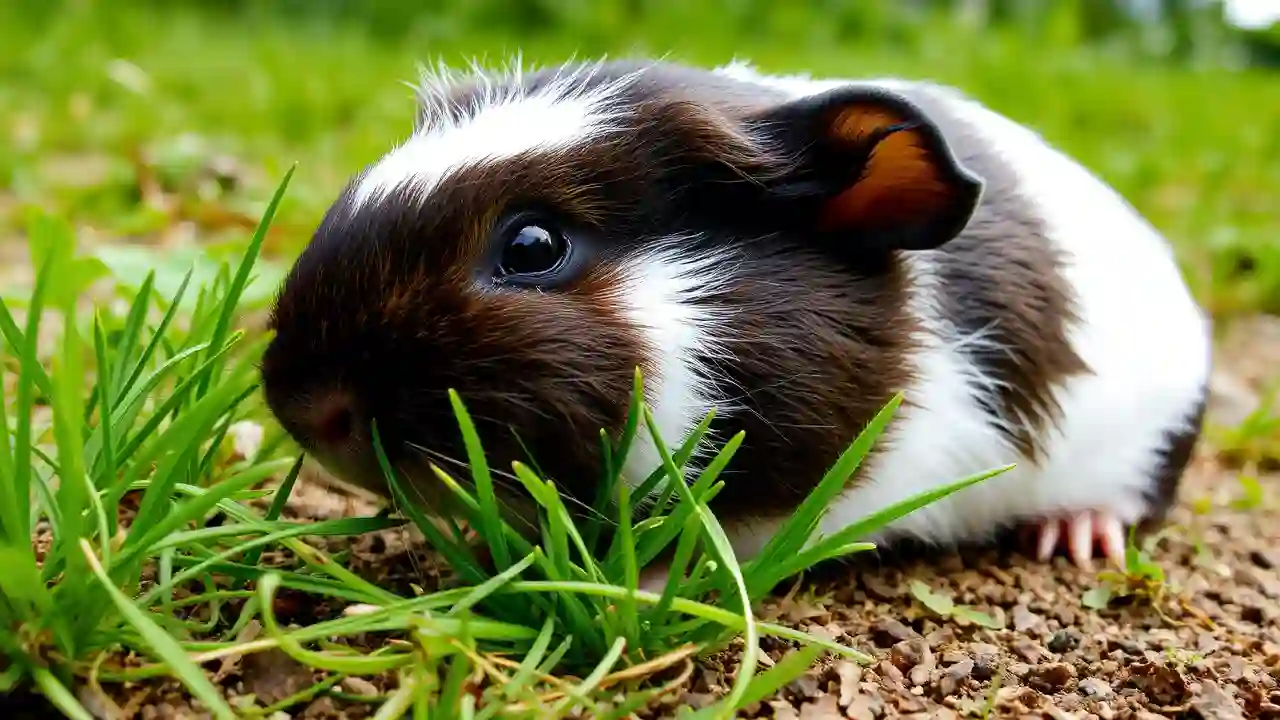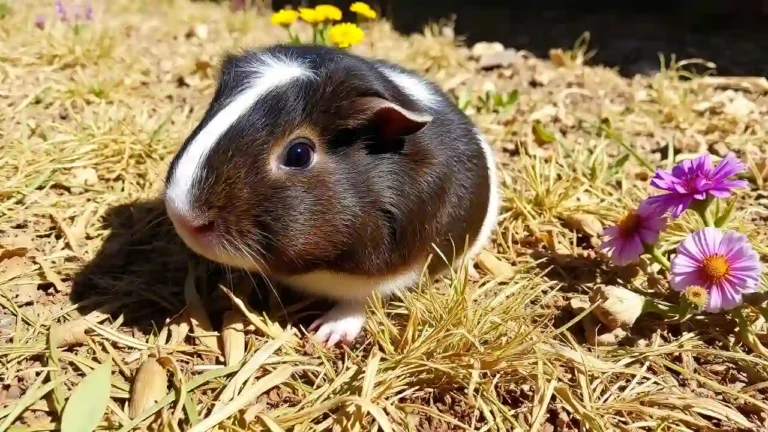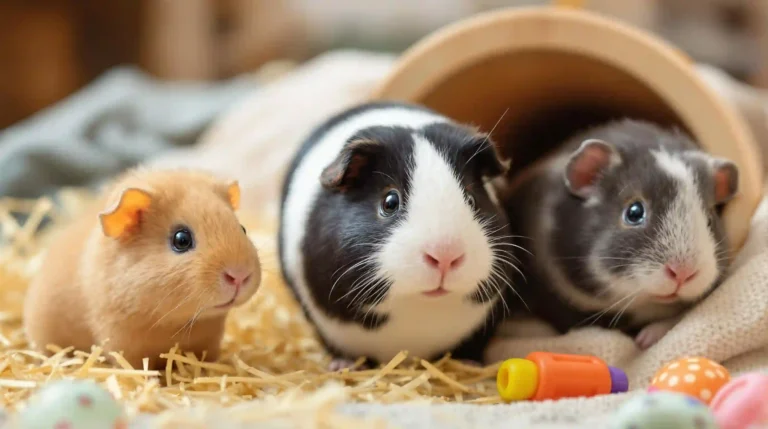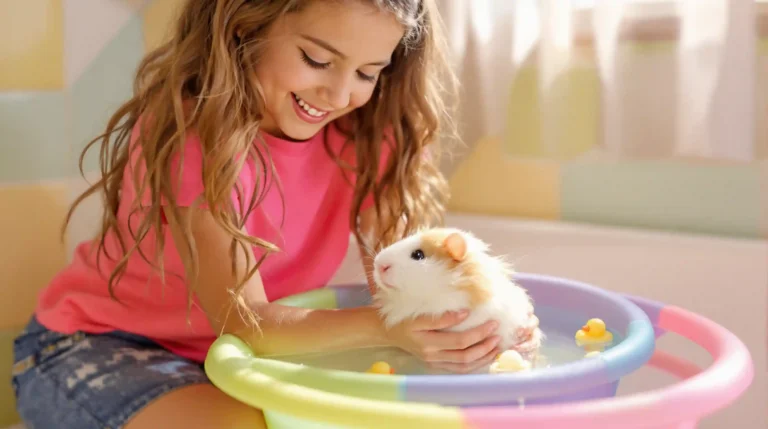Can Guinea Pigs Eat Outside Grass? A Complete Safety Guide
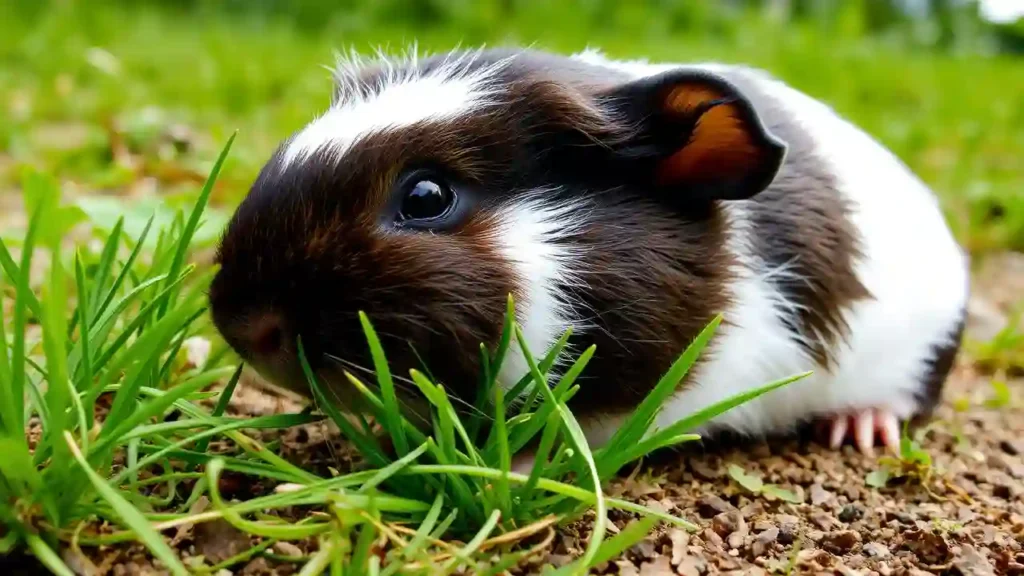
If you’ve ever watched your guinea pig sniffing around their cage, you’ve probably wondered, “Can guinea pigs eat outside grass?” The short answer is yes, but there’s a lot more to it than just letting your furry friend loose in the backyard.
While grass can be a healthy and natural treat for guinea pigs, there are some important things to know before you let them munch away.
Let’s dig into the details to keep your guinea pig happy and safe.
Is Outside Grass Safe for Guinea Pigs?
Yes, guinea pigs can eat outside grass, but only if it’s free from pesticides, herbicides, and other harmful chemicals.
Grass is a natural part of a guinea pig’s diet in the wild, and it’s packed with fiber and nutrients that are great for their digestive system. However, not all grass is created equal, and some precautions are necessary.
Think of it this way: grass is like a salad bar for guinea pigs, but you wouldn’t want them eating from a salad bar that’s been sprayed with chemicals or trampled by other animals. Clean, untreated grass is the key to making this a safe and healthy snack.
Benefits of Grass for Guinea Pigs
Fresh grass can be a fantastic addition to your guinea pig’s diet. Here’s why:
- Rich in Fiber: Grass is high in fiber, which helps keep your guinea pig’s digestive system running smoothly. It’s like nature’s broom for their gut!
- Low in Calories: Unlike some store-bought treats, grass is low in calories, making it a guilt-free snack.
- Natural Behavior: Eating grass allows guinea pigs to engage in natural foraging behavior, which keeps them mentally stimulated and happy.
- Vitamin C: While grass isn’t as high in vitamin C as some vegetables, it still provides a small boost, which is important since guinea pigs can’t produce this vitamin on their own.
How to Safely Feed Outside Grass to Guinea Pigs
Before you let your guinea pig graze, there are a few steps to follow to make sure the grass is safe:
1. Check for Chemicals
This is the golden rule. Never let your guinea pig eat grass that has been treated with pesticides, herbicides, or fertilizers. These chemicals can be toxic and even fatal to small animals. If you’re unsure whether the grass is treated, it’s better to skip it.
2. Avoid Grass Near Roads
Grass growing near roads or driveways may be contaminated with pollutants like car exhaust or oil. Stick to grass from your backyard or another clean, safe area.
3. Watch for Toxic Plants
Guinea pigs are curious eaters, but not all plants are safe for them. Make sure the grass doesn’t have any toxic weeds mixed in, such as dandelions, buttercups, or clover. While some weeds are harmless, others can cause serious health issues.
4. Introduce Grass Slowly
If your guinea pig has never eaten fresh grass before, introduce it gradually. Start with a small handful and watch for any signs of digestive upset, like diarrhea or bloating. Their stomachs need time to adjust to new foods.
5. Wash the Grass
Even if the grass looks clean, it’s a good idea to rinse it with water to remove any dirt or potential contaminants. Think of it as giving their snack a quick rinse before serving.
How Much Grass Can Guinea Pigs Eat?
While grass is healthy, it shouldn’t replace your guinea pig’s main diet of hay, fresh vegetables, and pellets. Hay should always make up the bulk of their diet because it provides the long fibers they need to keep their teeth and digestive system healthy.
Grass can be offered as a treat or supplement, but don’t overdo it. Too much fresh grass can cause diarrhea or bloating, especially if your guinea pig isn’t used to it. A small handful a few times a week is a good starting point.
Can Guinea Pigs Graze Outside?
Letting your guinea pig graze outside can be a fun and enriching experience, but it comes with some risks. Here’s what to keep in mind:
1. Supervision is a Must
Guinea pigs are small and vulnerable to predators like birds, cats, and dogs. Never leave them unsupervised while they’re outside.
2. Use a Safe Enclosure
If you’re letting your guinea pig graze, use a secure outdoor playpen with a solid bottom to prevent them from digging out or predators from getting in. Make sure the enclosure is shaded to protect them from overheating.
3. Watch the Weather
Guinea pigs are sensitive to temperature changes. Avoid letting them graze on very hot or cold days, and always provide shade and water.
4. Time it Right
Limit outdoor grazing sessions to 20-30 minutes at a time, especially if your guinea pig isn’t used to eating fresh grass. This helps prevent overindulgence and digestive issues.
Guinea pigs grazing on clean, untreated grass for 20-30 minutes can benefit from a variety of nutrients and health advantages.
Here’s a breakdown of the nutritional value and benefits they receive:
Nutritional Value:
- Fiber: Grass is rich in dietary fiber, which is essential for maintaining a healthy digestive system in guinea pigs. Fiber helps prevent constipation and promotes gut motility.
- Vitamin C: Fresh grass contains small amounts of vitamin C, which is crucial for guinea pigs as they cannot produce it themselves. While grass alone may not meet their full vitamin C needs, it contributes to their overall intake.
- Low Calories: Grass is low in calories, making it a healthy option for guinea pigs, especially those prone to weight gain.
- Moisture Content: Fresh grass provides hydration due to its natural water content, which can supplement their water intake.
- Minerals: Grass contains trace amounts of minerals like silicon, which supports healthy teeth and bones.
Health Benefits:
- Dental Health: Chewing grass helps wear down guinea pigs’ continuously growing teeth, preventing dental issues.
- Mental Stimulation: Grazing mimics their natural foraging behavior, providing mental enrichment and reducing boredom.
Estimated Intake:
In 20-30 minutes of grazing, a guinea pig may consume a small handful of grass (approximately 10-20 grams). This amount provides a modest boost of fiber and hydration but should be supplemented with hay and vegetables for a balanced diet.
A Quick Anecdote: Learning the Hard Way
When I first let my guinea pig, Nibbles, try outside grass, I thought I was doing everything right. I picked a clean patch of grass in the backyard and let him graze for a few minutes.
What I didn’t realize was that a neighbor’s cat had been roaming the area earlier. Nibbles didn’t get hurt, but the scare taught me to always double-check the area for potential dangers.
Now, I use a secure playpen and keep a close eye on him while he’s outside.
Signs of Trouble: When Grass Isn’t Safe
Even with the best precautions, it’s important to watch for signs that something might be wrong. If your guinea pig shows any of these symptoms after eating grass, contact your vet:
- Diarrhea or loose stools
- Lethargy or lack of energy
- Loss of appetite
- Bloated stomach
These could be signs of digestive upset or exposure to harmful substances.
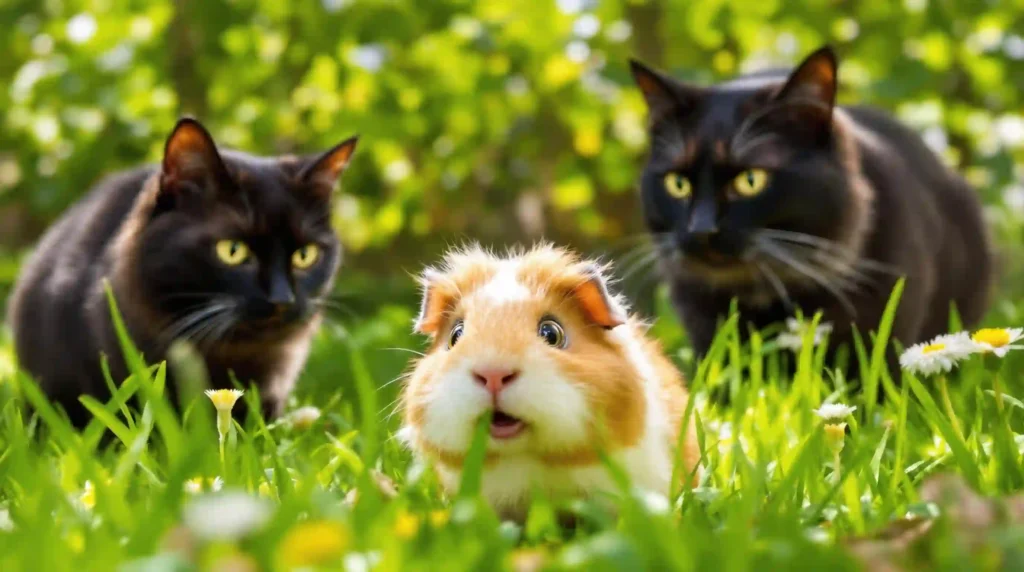
Final Thoughts: Can Guinea Pigs Eat Outside Grass?
So, can guinea pigs eat outside grass? Absolutely—but only if it’s clean, untreated, and free from harmful plants or chemicals.
Grass can be a healthy and enjoyable treat for your guinea pig, but it’s up to you to make sure it’s safe. By following the tips above, you can let your guinea pig enjoy the great outdoors without any worries.
Remember, guinea pigs are like tiny lawnmowers with big personalities. Watching them nibble on fresh grass is not only adorable but also a great way to keep them happy and healthy.
Just be sure to take it slow, keep an eye on them, and always prioritize their safety. After all, a happy guinea pig is a healthy guinea pig!

